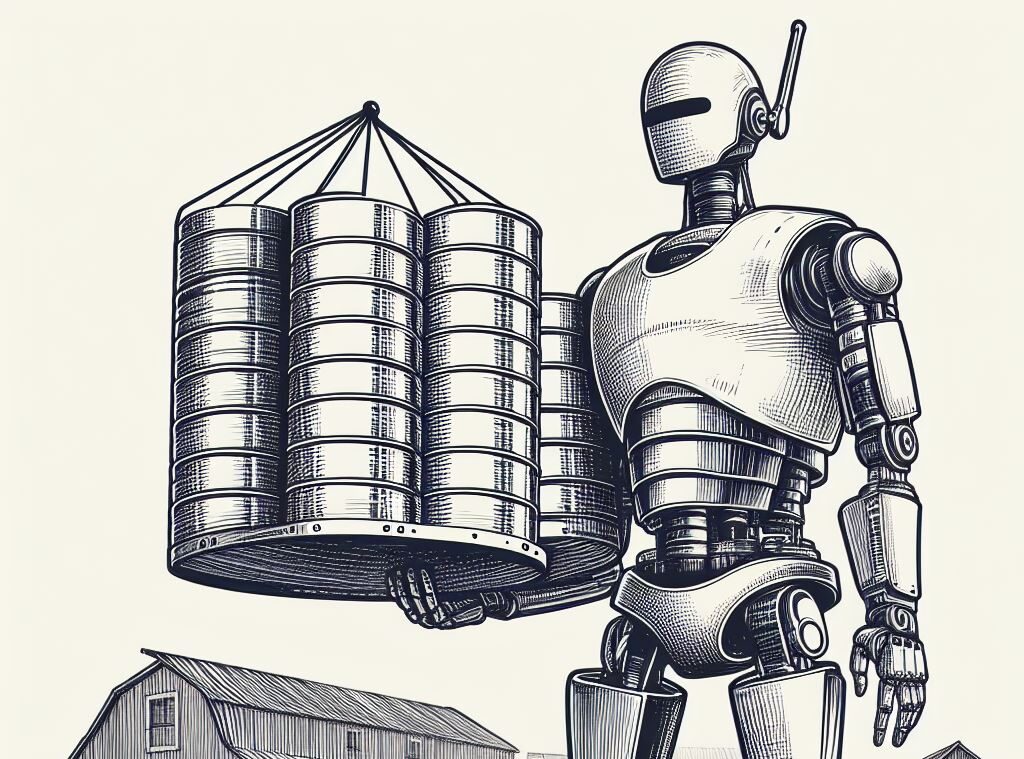
Abstract
The healthcare industry stands at the crossroads of a technological revolution, with innovation and digital transformation reshaping its core foundations. In this article I explore the critical intersection of technology and healthcare, highlighting why technology adoption is recognised as a pivotal factor in the industry’s ability to provide quality services to patients. I delve into a range of exciting technical innovations in healthcare, including digital health, artificial intelligence (AI) and machine learning (ML) for medical diagnosis, robotics, 3D printing, nanotechnology, and discuss their profound impact on the industry and patients across the globe. I also look at the ethical considerations surrounding healthcare technology and do a little crystal ball gazing to consider what the future might look like for technology in healthcare.
Introduction
The healthcare industry has been evolving and adapting to technological advancements over many years now. Today, it is widely recognised that technology adoption in healthcare is not just desirable but essential. The convergence of technology and healthcare is ushering in a new era, offering promising solutions to longstanding challenges while opening up avenues for unprecedented advancements in patient care and well-being across the globe.
The Imperative of Technology in Healthcare
The healthcare industry, like any other, faces a plethora of challenges. Some of these challenges include rising healthcare costs, access disparities, an aging population, and the need for more efficient and accurate medical diagnoses and treatments. Technology, with its ability to improve efficiency, reduce costs, and enhance patient outcomes, has become the cornerstone of addressing these challenges.
The urgency of adopting technology in healthcare can be understood by considering several key factors:
Demographic Shifts:
The world’s population is aging rapidly, leading to an increased demand for healthcare services. Technology can help streamline care delivery, manage chronic conditions, and improve the quality of life for the elderly.
Data Explosion:
Healthcare generates an immense amount of data, from patient records to medical research. Technology enables the collection, storage, analysis, and sharing of this data, driving medical discoveries and personalised treatment plans.
Access to Healthcare:
Technology has the potential to bridge geographical gaps by enabling telemedicine and remote monitoring, making healthcare accessible to underserved populations.
Patient Empowerment:
Digital health tools empower patients to take control of their health through wearable devices, mobile apps, and telehealth services. This shift towards patient-centric care fosters better engagement and adherence to treatment plans.
Technical Innovation in Healthcare
The Digital Health Revolution
Digital health represents a transformative force within healthcare. It encompasses a wide range of technologies, from electronic health records (EHRs) to wearable devices and telemedicine (and more). The impact of digital health on the healthcare industry has been profound, and with further adoption is set to grow its influence and outcomes.
Electronic Health Records (EHRs):
EHRs have replaced traditional paper records, improving the efficiency of healthcare operations. They facilitate seamless data sharing among healthcare providers, reducing errors and ensuring continuity of care.
Wearable Devices:
Smartwatches and fitness trackers have evolved into powerful health monitoring tools. They can track vital signs, detect anomalies, and provide real-time health insights to users and healthcare providers.
Telemedicine:
Telemedicine has revolutionised the way healthcare is delivered, especially in remote or underserved areas. Patients can receive consultations, diagnoses, and even treatments without the need for in-person visits.
AI and ML for Medical Diagnosis
Artificial intelligence and machine learning have made significant inroads into healthcare, particularly in medical diagnosis.
Radiology and Imaging:
AI algorithms can analyse medical images, such as X-rays and MRIs, with remarkable accuracy, aiding radiologists in detecting diseases like cancer at earlier stages.
Disease Prediction:
ML models can predict disease risk by analysing patient data, genetic information, and lifestyle factors. This enables proactive interventions and personalised preventive care.
Drug Discovery:
AI-powered drug discovery accelerates the development of new medications by analysing vast datasets and simulating drug interactions, potentially reducing development timelines and costs.
Robotics in Healthcare
Robotics has found applications in surgery, patient care, and rehabilitation.
Surgical Robots:
Robotic-assisted surgery offers precision and minimally invasive procedures, reducing patient recovery times and improving surgical outcomes.
Patient Care Robots:
Robots can assist in tasks like medication delivery, patient monitoring, (and even companionship for the elderly), easing the burden on healthcare staff.
3D Printing for Healthcare
The advent of 3D printing technology has revolutionised the creation of medical devices, prosthetics, and even human tissue.
Custom Implants and Prosthetics:
3D printing enables the creation of custom implants and prosthetics tailored to individual patients’ needs, improving comfort and functionality.
Tissue Engineering:
Bioprinting holds the promise of generating replacement organs and tissues, potentially solving the organ shortage crisis.
Nanotechnology in Healthcare
Nanotechnology operates at a molecular and atomic scale, offering precision and efficiency in drug delivery, diagnostics, and treatment.
Drug Delivery:
Nanoparticles can carry drugs directly to target cells, reducing side effects and improving therapeutic outcomes.
Diagnostics:
Nanobiosensors can detect diseases at an early stage by identifying specific biomarkers, enabling timely interventions.
The Future of Technology in Healthcare
As technology continues to advance, the future of healthcare holds limitless possibilities. Let’s consider some of the innovations coming to tech in healthcare.
Genomic Medicine:
The integration of genomics into healthcare will enable truly personalised treatment plans based on an individual’s genetic makeup.
Quantum Computing:
Quantum computing has the potential to revolutionise drug discovery, genomics, and complex simulations, ushering in a new era of medical research.
Blockchain for Healthcare:
Blockchain technology can enhance data security, interoperability, and patient control over their health records.
Augmented Reality (AR) and Virtual Reality (VR):
AR and VR applications in healthcare range from medical training and simulation to pain management and rehabilitation.
Bioinformatics and Computational Biology:
Advanced computational tools will enable researchers to process and analyse vast biological datasets, leading to breakthroughs in understanding diseases and drug development.
Healthcare Technology and Ethics
The rapid integration of technology into healthcare brings forth a host of ethical considerations that must be addressed.
Data Privacy and Security:
Protecting patient data is paramount. Healthcare organisations must implement robust security measures to safeguard sensitive information.
Algorithm Bias:
AI and ML algorithms can perpetuate bias if not properly trained. Ensuring fairness and transparency in healthcare algorithms is essential.
Informed Consent:
Patients must be well-informed about the use of their data and must give consent for its utilisation in research or treatment.
Equity and Access:
Technological advancements should not exacerbate healthcare disparities. Efforts must be made to ensure that communities across the globe have access to these innovations.
Conclusion
The intersection of technology and healthcare is no longer a hypothetical concept but a transformative reality. From digital health solutions and AI-driven diagnostics to robotics, 3D printing, and nanotechnology, these innovations have already begun to reshape the healthcare landscape.
The healthcare industry’s future holds immense promise as we witness the continued integration of technology. While challenges and ethical considerations persist, the benefits of improved patient care, reduced costs, and enhanced access to healthcare are undeniable. It is incumbent upon all stakeholders – healthcare providers, policymakers, technologists, and patients – to collaboratively navigate this exciting journey towards a healthier, technologically empowered future.





